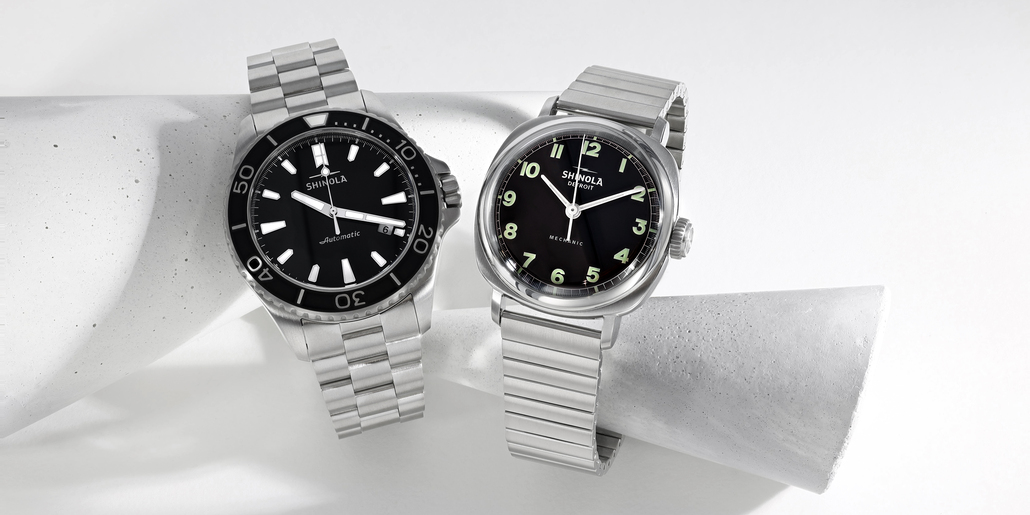When it comes to buying a watch, the decision can feel overwhelming. Where do you begin and what differences should you focus on? One key factor to consider is the movement type, which could very well be the deciding factor for your watch choice. Advances in technology have introduced a wide variety of movement types that power modern timepieces, but before these innovations, manual movements were the standard. Today, the two most common types of watch movements are automatic and quartz. Each movement has its own unique features, making it essential for buyers to understand their differences. Continue reading to learn more about each movement, as this decision will undoubtedly influence your overall watch-wearing experience.
What Is an Automatic Watch Movement?
An automatic watch movement, also known as a self-winding watch movement, is a type of mechanical movement powered by the motion of the wearer’s wrist. Inside the watch is a small rotor—a semi-circular weight—that moves with the wearer’s arm. This motion winds the mainspring, which stores energy to power the watch. Since they are powered by the wearer’s motion, automatic watches don’t require batteries. Automatic watches typically have a power reserve of 24 to 72 hours, meaning if the watch isn’t worn for an extended period, it will stop and need to be manually wound or worn again to restart the movement. A watch winder is a convenient solution to keep an automatic watch running when it’s not being worn regularly. The constant winding and intricate engineering make automatic watches particularly attractive to those who appreciate traditional watchmaking. Many collectors and watch enthusiasts enjoy the experience of winding their watches or observing the mechanical movement. Automatic watches are generally more expensive because of the complexity of the movement and the craftsmanship involved. Additionally, they may require servicing over time to maintain optimal performance, particularly due to the wear and tear of the mechanical components.
What Is a Quartz Watch Movement?
A quartz watch movement is powered by a small, battery-operated quartz crystal that vibrates at a precise frequency when an electrical current passes through it. These vibrations are then translated into timekeeping signals that drive the watch hands. Quartz watches are known for their exceptional accuracy, often deviating by only a few seconds per year. Unlike automatic watches, quartz watches don’t require winding or regular wearing to keep time. They need minimal maintenance aside from occasional battery replacements. The battery in a quartz watch typically lasts one to two years, after which it needs to be replaced. Once the battery is changed, the watch will continue to run effortlessly. Quartz movements are generally less expensive due to their simpler design compared to automatic movements, making quartz watches more accessible and offering a wide range of options for different budgets.

Which Watch Movement Should You Choose?
Choosing between an automatic and a quartz watch movement largely comes down to personal preference and lifestyle. Go for an automatic movement if you appreciate craftsmanship, mechanical engineering and the tradition of watchmaking. Automatic watches are ideal for collectors or those who enjoy the ritual of winding their watch and caring for a finely crafted timepiece. There’s also the satisfaction of wearing a self-winding watch that operates purely through your natural movements. On the other hand, choose a quartz movement if you value precision, convenience and low-maintenance timekeeping. Quartz watches are perfect for those who prioritize accuracy over the complexity of the mechanics. They’re also a savvy option for individuals who prefer not to worry about winding or manually resetting their watch.
Both automatic and quartz movements have their merits and can be great choices depending on your preferences. Whether you prefer the mechanical artistry of an automatic watch or the reliable accuracy of a quartz watch, there’s a timepiece for you.

